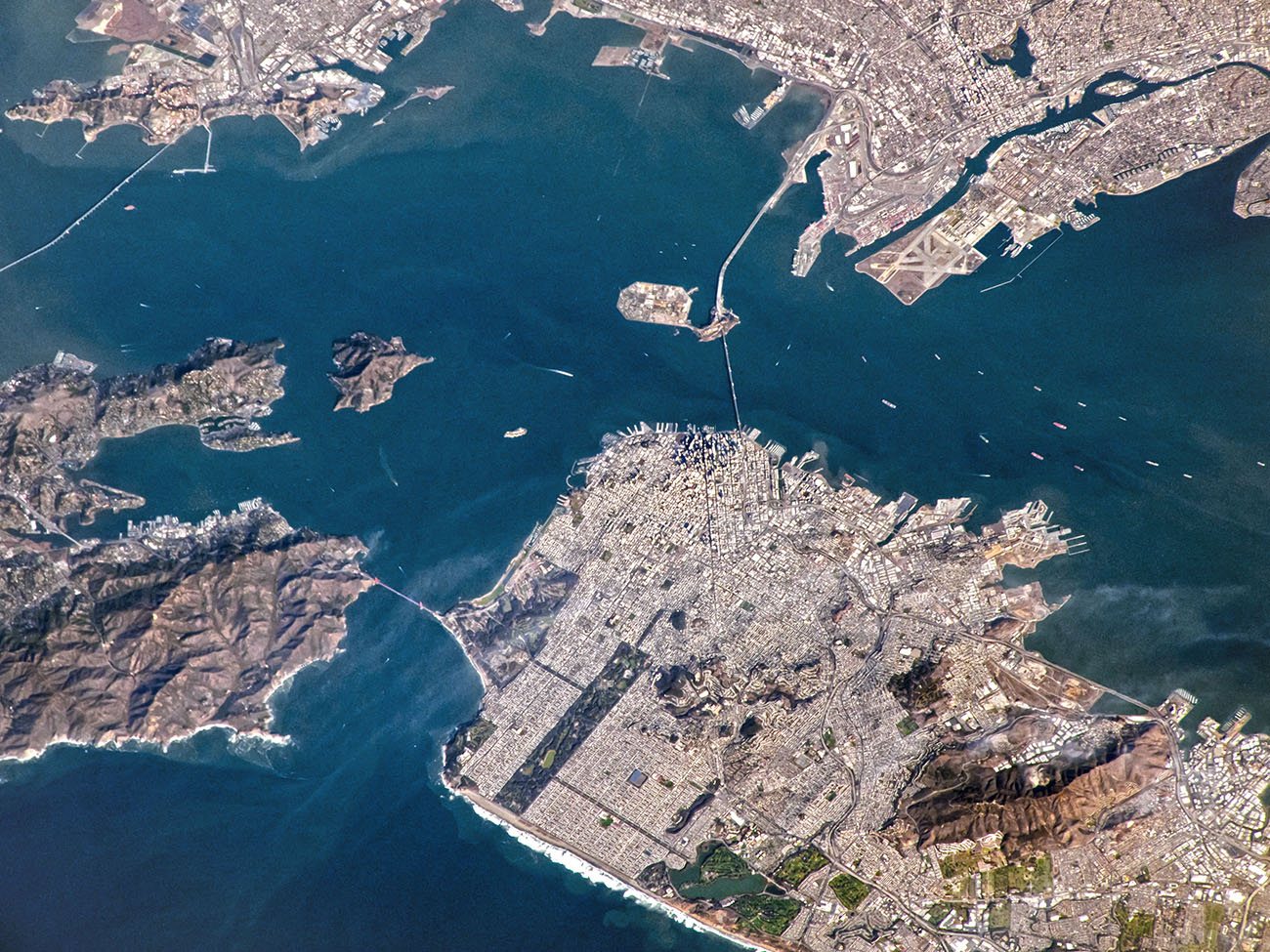
It Takes More Than Knowledge to Understand the Earth
www.discovermagazine.com
San Francisco Bay seen from the International Space Station on April 25, 2021. Credit: NASA.NewsletterSign up for our email newsletter for the latest science newsThere has always been the tendency to put our understanding of the Universe into silos. It makes it easier to create models within those silos that explain how parts of our world might operate. However, as with any model, these silos are just the boundaries we set to allow for the model to work. Otherwise, trying to account for every potential factor would far exceed any ability to make sense out of complexity.When it comes to models, we have to take the crunchy with the smooth. They are great because they help us build the foundation of knowledge. Unfortunately, they also tend to make people think only in their model's space. This propensity leads to a lack of appreciation of the interconnectedness of things. Your model might be really good at showing us how sediment moves in a river channel, but if you don't then take those results and consider human influence on the river landscape, then you are not seeing the complete picture. It doesn't mean the model is wrong, we just need to acknowledge when a model is only a piece of the picture.ConnectionsThere is a way to connect almost any Earth or environmental concept to people. No matter how seemingly esoteric that idea might be, too much of our world is interwoven to be totally divorced from our existence. The mineralogy of the mantle might tell us something about how much magma it can generate, something that can be linked to volcanic behavior. The thermodynamics and physics of ice can inform our models on how ice sheets might collapse due to climate change. The rates of erosion in mountains could give us better assessment of potential landslide or earthquake hazards. The connections are there, we just need to see them.This means that the tendency to think about studying a discipline as an end to itself is so faulty. Many times, students will ask "why do I need to know this?" The real question should be "is there anything that could be not worth knowing?" Knowledge is additive, so learning about subjects close and far from whatever is your desired path leads to the ability to make connections that might otherwise be missed.Our current society values hyper-specialization to a fault. People are put into leadership roles who have little-to-no understanding of the world beyond a narrow window of training (like many computer programming or investing or politics). The lack of breadth leads to decisions that don't take into account how much of our world is connected, leading to fallout across a much larger swath of the planet and society.Myriad of PerspectivesThis isn't just in terms of academic knowledge. A broad experience as well as interaction with people with broad experiences makes for more creative problem solving. There are countless examples of cross-pollination within or across disciplines that lead to discovery. "I hadn't thought of it that way" is a mantra that betrays the vital importance of breadth and curiosity across disciplines.The inexorable connectedness in understanding our planet -- the Earth itself, the environment in which we live and society itself -- necessitates that we all try to break out of our disciplinary silos. Researching isotope geochemistry of basalt? Could you apply it to understanding how climate has changed across Earth's history? Maybe it could unlock a mystery about the formation of important resources? Maybe it can help model how chemical contaminants move in the crust? All of these require to think outside one's own silo.It doesn't take much to be curious about these connections. It might involve picking up a book, talking to a colleague or just going for a walk outside. What it does require is removing the mostly artificial boundaries we put on scientific disciplines. It also involves being willing to listen to people who have different ideas. It involves being willing to admit when you don't have it all figured out. Being intellectually curious, humble and honest are the pillars of scientific inquiry. Without these, we will never understand the complexity that is the foundation of our planet.earth science1 free article leftWant More? Get unlimited access for as low as $1.99/monthSubscribeAlready a subscriber?Register or Log In1 free articleSubscribeWant more?Keep reading for as low as $1.99!SubscribeAlready a subscriber?Register or Log In
0 Comments
·0 Shares
·53 Views


